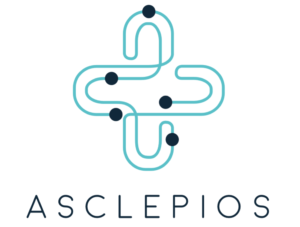
ASCLEPIOS, along with MiCADO make it easy to deploy secure, scalable healthcare applications to any cloud, anywhere, regardless of whether it is private or public.
Cloud computing comes in many shapes and sizes. One of the biggest differentiators between different cloud infrastructures today is the distinction between public clouds and private clouds. Common public cloud providers include Amazon Web Services (AWS), Microsoft Azure and Google Cloud, but there is a much longer list of smaller commercial providers from around the world. These providers serve customers with on-demand cloud resources and maintain the platform, infrastructure and data centre that enable those cloud resources. Public clouds are so-called because that underlying infrastructure can be shared across the entire customer base of the cloud service provider.
Private clouds, on the other hand, are managed and maintained for a single organisation or organisational group. The underlying infrastructure for a private cloud might be on-premise and administrated in-house with an open-source cloud platform like OpenStack or OpenNebula. Alternatively, the platform and infrastructure can be managed by a third party that allocates from a larger data centre and manages dedicated resources for a given organisation. Private clouds get their name because the underlying cloud infrastructure is reserved for a single entity.
There are inherent differences in the privacy and security of public versus private clouds. Privacy is often rated poorly in public clouds, since any data is stored off-site. Compared with an on-premise private cloud, where data is stored on-site, usage of public clouds introduces a higher risk to privacy. Security, on the other hand, especially for the major public cloud providers, is usually of a high grade. Resources in a public cloud are by default protected against a number of common attacks, and vulnerabilities are patched shortly after they are discovered. On a private cloud where the security is managed in-house, keeping up this level of security can be demanding, and it may fall short of what can be offered by the public clouds.
A cloud for the ASCLEPIOS services
These concerns are only the tip of the iceberg, and the public versus private cloud debate goes much deeper than the most basic privacy and security concerns. The specific use case of an organisation or group will determine which type of cloud is most appropriate, and oftentimes both public and private clouds will play an important role. The ASCLEPIOS services are designed with public and private clouds in mind, and the ASCLEPIOS platform supports moving an application, along with its bespoke set of ASCLEPIOS services, from one cloud to another.
This portability is facilitated by MiCADO, the engine currently used for the deployment of the ASCLEPIOS demonstrator applications and ASCLEPIOS services. MiCADO is an open-source automated deployment and auto-scaling framework that offers one-click deployment of a complex application to a selected private or public cloud. In the case of ASCLEPIOS demonstrators, the healthcare application properties, as well as a pre-determined set of appropriate ASCLEPIOS security enablers are described in TOSCA-based Application Description Templates (ADT). Policies describing the scalability, security or monitoring of the application infrastructure can be added to the ADT before it is submitted to MiCADO. Once submitted, the deployment and configuration of the application and security enablers are handled by MiCADO, and any specific policies are enforced for the lifetime of the application.
Both public and private clouds play an important role in cloud computing and each has its own set of advantages for healthcare organisations. ASCLEPIOS, along with MiCADO make it easy to deploy secure, scalable healthcare applications to any cloud, anywhere, regardless of whether it is private or public.
The article "Cloud Computing: Private vs Public" was first published by the Asclepios project.


